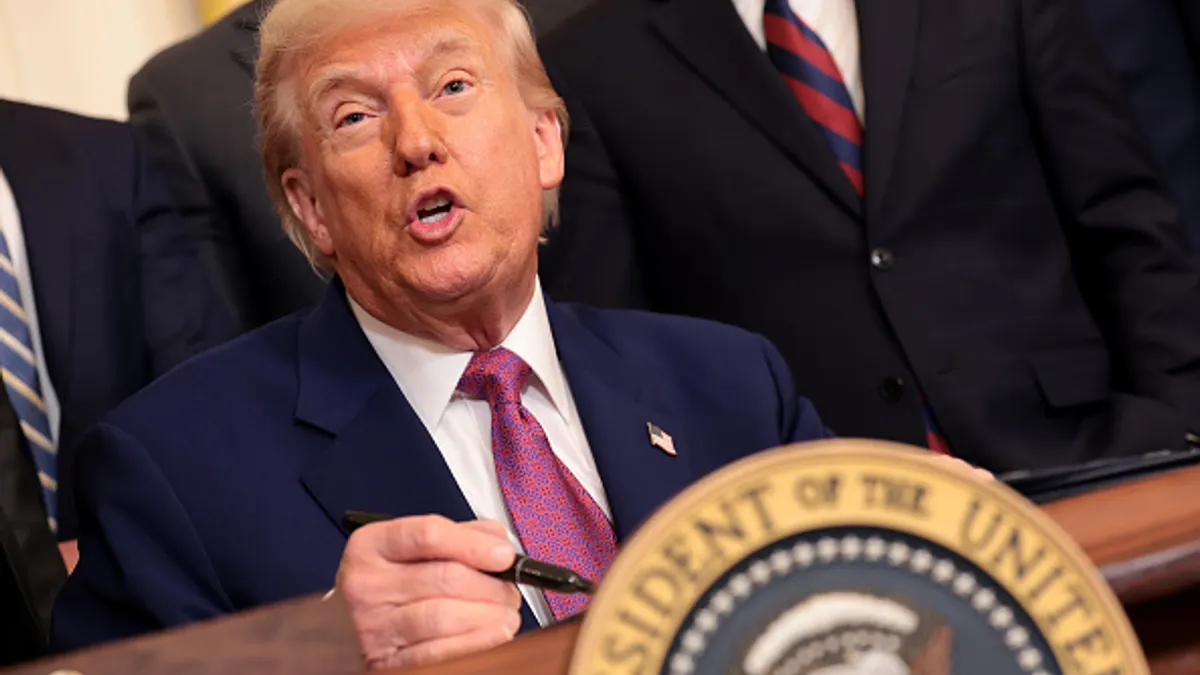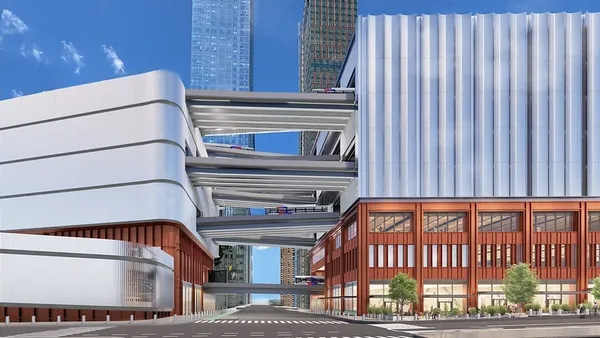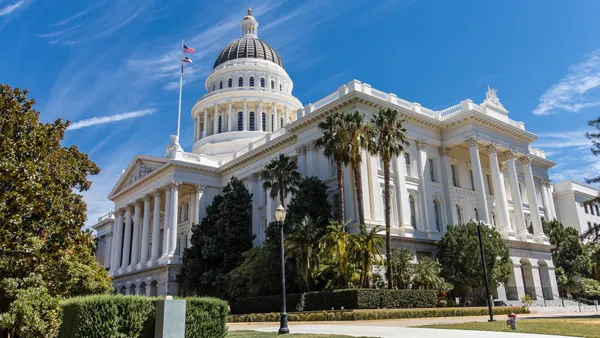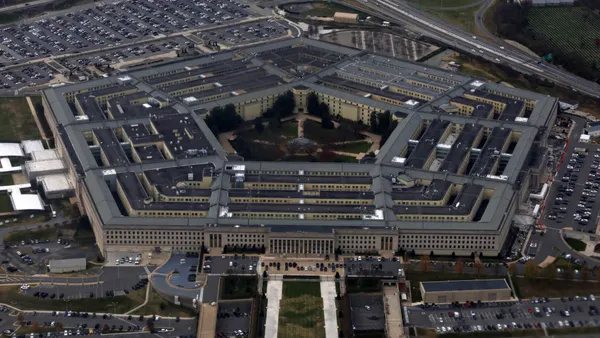Dive Brief:
- An AECOM-led Build America Investment Initiative study found that 40 potential or in-progress U.S. infrastructure and public works projects costing $330 billion could provide between $500 billion and $1.1 trillion in net economic benefits, according to Engineering News-Record.
- In addition, the Treasury Department report indicated that two programs — a $1.3 trillion autonomous vehicle initiative and a $790 billion recapitalization of the country’s interstate network — could also provide massive returns.
- The major roadblock in starting work on or completing these projects is funding, followed by budget overruns, disagreements between project stakeholders and regulatory red tape, according to the report.
Dive Insight:
The Treasury Department said it commissioned the report to illustrate the economic benefits — for the public and private industry — of investing in the country’s infrastructure. The agency said it also wanted to highlight the potential for increased energy efficiency, a better public health framework and a boost to the manufacturing industry. The agency said revenue-generating projects like toll roads were not included in the report because those undertakings have less difficulty drawing investor interest.
Highway projects dominated the report's list, with rail, water and port-related projects not far behind. Five of the projects involve work nationwide, while the South is the biggest regional player with 17. The two most expensive programs are the $100 billion, Amtrak-led Northeast Corridor (Atlantic Gateway) rail-connectivity improvement project and the near-$60 billion California bullet train.
The Treasury Department's report is just the latest in a string of analyses that have extolled the potential benefits of serious American infrastructure investment, but the question usually comes down to the same issue — paying for it. On state and local levels, many governmental agencies have seen success with public-private partnerships, leveraging the private sector's ability to access financing, along with its expertise. However, there has been hesitation in some quarters about allowing what could lead to the privatization of some assets.
President-elect Donald Trump has added to that discussion with his proposed $1 trillion infrastructure plan. According to his team, the private sector would have the opportunity to finance projects in exchange for an 82% tax credit for equity investment. The proposal has already started to create a divide between Democrats and Republicans, with the former favoring direct spending to support any infrastructure initiative and the latter promising to push back against any stimulus initiative.













